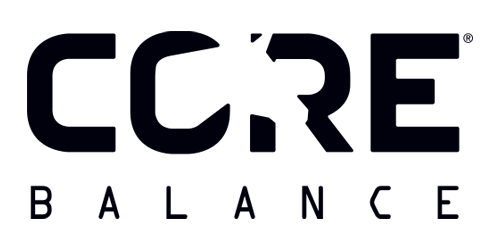Richard G. Godbee, Ph.D., PAS, Dipl ACAS-Nutrition
Core Balance LLC
When it comes to horse care, the details matter—especially when choosing the right supplements. A common topic of debate for horse owners is the difference between natural and synthetic vitamins, particularly Vitamin E. With so much information out there, it can be difficult to sort through the facts and know which is best for your horse (and why.) In this article, we’ll explain the differences between the two and why it matters.
The Basics: Natural vs. Synthetic Vitamin E
Vitamin E supplements are available in two forms: natural and synthetic. Natural vitamin E is known as d-alpha-tocopherol, and it contains a single highly bioavailable isomer form that the body can easily absorb and use. Synthetic vitamin E, on the other hand, is called d,l-alpha-tocopherol or d,l-alpha-tocopheryl acetate and contains a mix of eight different isomers, only one which matches the natural form.
The key difference lies in how your horse’s body processes these forms. Studies show that in humans and animals alike, the natural isomer of Vitamin E is preferentially absorbed and utilized, making natural Vitamin E more effective. This form is also efficient at crossing the blood-brain barrier, which is crucial for horses with neurological concerns.
Why Is Vitamin E Important for Horse Health?
Vitamin E is a powerful antioxidant that plays a vital role in your horse's overall health. It helps maintain normal neuromuscular function and neutralizes harmful free radicals in the body which can damage cells and lead to various health issues. Vitamin E is essential in the following functions:
- Muscle Health: Vitamin E supports muscle function by preventing oxidative damage. It is particularly important for performance horses, as it helps reduce muscle soreness and stiffness after intense exercise.
- Immune System Support: Vitamin E bolsters the immune system, helping your horse fight off infections and recover more quickly from illness or injury.
- Neurological Health: Vitamin E is crucial for maintaining the health of the nervous system. Horses with low levels of vitamin E may be at risk for neurological disorders such as Equine Motor Neuron Disease (EMND), Equine Degenerative Myeloencephalopathy (EDM), and Equine Protozoal Myloencephalitis (EPM).
- Reproductive Health: In broodmares, adequate levels of vitamin E are necessary for optimal fertility, healthy pregnancy, and the production of high-quality colostrum, which is vital for foal immunity.
Ensuring your horse gets enough vitamin E is critical, especially if they are exposed to stress, are in intense training, or have limited access to fresh pasture.
Should You Supplement Your Horse's Diet?
If your horse has consistent access to high-quality green pastures and is in good health, additional vitamin E supplementation might not be necessary. However, there are certain situations where supplementation can be beneficial:
- Limited Pasture Access: If your horse has limited access to fresh green forage (the primary source of naturally occurring vitamin E), a supplement may be necessary to maintain optimal health.
- Pregnant or Lactating Mares: Supplementing with natural vitamin E during the last 60 days of gestation and the first 30 days of lactation can enhance both maternal and foal health.
- Performance Horses: Work increases the need for antioxidants, and vitamin E plays a critical role in maintaining cellular integrity and muscle recovery.
- Horses Exposed to Stress: Horses that are frequently exposed to stress, such as those in shows or competitions, may benefit from supplementation, especially with natural vitamin E, given its effectiveness in supporting neurological health.
The Bottom Line
Natural vitamin E is more potent and bioavailable than its synthetic counterpart. While it is more expensive, it offers significant benefits, particularly for horses with neurological issues or those in stressful situations. Whether in liquid or powder form, choosing the right vitamin E supplement can make a difference in your horse's health and performance. If you're looking to supplement natural Vitamin E in your horse's diet, check out our two comprehensive supplements: Core Complete and Core Developmental.

